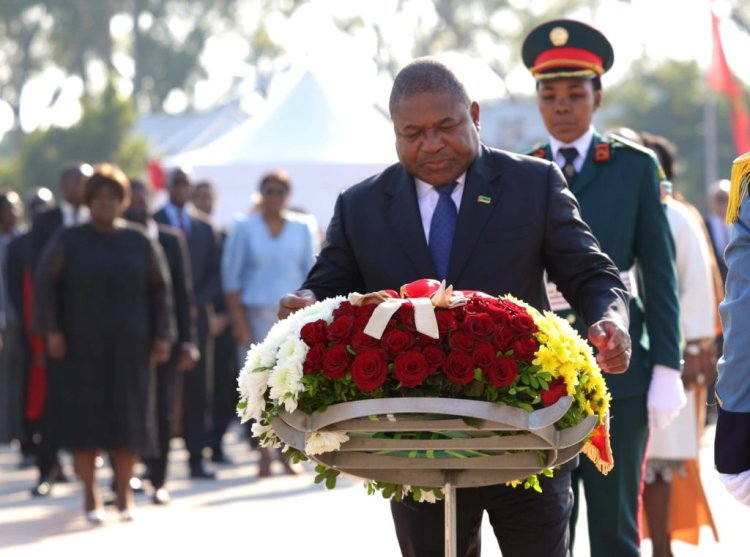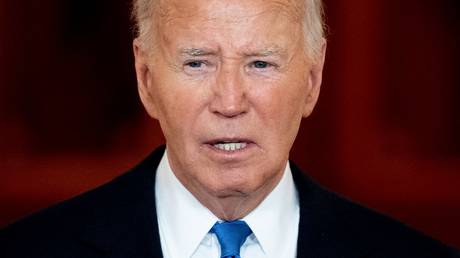Political battles should obey legal dictates
(AIM) – Mozambican President Filipe Nyusi said on Sunday that political battles should obey the legal and constitutional dictates of a democratic state, bearing in mind that the municipal elections scheduled for 11 October, will be the first elections ever held in the country without any armed political parties.

Speaking in Heroes’ Square in central Maputo, on the occasion of the 48th anniversary of Mozambican independence, on 25 June 1975, Nyusi was referring to the demobilization and disarmament of the militia of the main opposition party, Renamo. The final Renamo military base was closed on 14 June.
“We can celebrate because, for the first time since 1975, the country does not possess any political party that is officially armed. We are all called upon to guarantee that peace is effective and lasting”, he declared.
He announced that, across the country, as part of the independence celebrations, 1,059 veterans of the national liberation struggle will be decorated.
Looking ahead to the October municipal elections, Nyusi said they should be held in a festive environment, as part of “the consolidation of the gains made by our democratic state”.
He added that, 32 years after the peace agreement signed in Rome between the government and Renamo, “our brothers in Renamo have handed over their last gun to the Mozambican state”.
The challenge now, said Nyusi, was to extinguish the foci of terrorist violence in parts of the northern province of Cabo Delgado, where jihadist groups have been fighting against the Mozambican state since 2017.
“Recently we have witnessed the return of displaced people, thanks to our defence and security forces, with the support of the Mission in Mozambique of the Southern African Development Community (SAMIM) and of the Rwandan armed forces”, added the President.
Nyusi recalled the gains made by Mozambican education since the nationalization of the education system on 24 July 1975. He noted that at the time of independence 93 per cent of the population was illiterate. The illiteracy rate has now dropped to 39 per cent.
Since 2018, school enrolment fees have been abolished, and basic education is now entirely free of charge. The number of primary schools, Nyusi said, had risen from 5,250 to today’s figure of 13,250.
In 1975, the country had just nine secondary schools – but today there are 2,450. In 1975, there were 697,975 pupils in Mozambican schools, but this year there are 9,044,576 children in primary and secondary schools, and 48.8 per cent of them are girls.
In 1975, Mozambique had just one university. Today, the country has 56 institutions of higher education, 22 of them publicly owned, and 34 private. The number of technical schools rose from 26 in 1975 to 111 in 2015.
For Nyusi, one of the major gains of independent Mozambique was the reduction in maternal mortality, which fell from 136 deaths per 1,000 live births in 1982, to 53 deaths today.
The number of health units rose from 579 to 1,779. There were only 171 doctors in Mozambique in 1975, but today there are 2,892. The number of nurses increased dramatically, from 370 in 1980 to 18,579 now.
As for agriculture, Nyusi noted that in 1975 its main purpose was to supply raw materials (such as cotton, sisal, tea and sugar cane) to the colonial industries. But after independence, the focus switched to satisfying the basic needs of Mozambicans.
The government’s agricultural development programme, Sustenta, “seeks to improve the quality of life of rural households through family agriculture in productive value chains”.
The results, Nyusi said, could be seen in rising food production. Today, the country is producing more than two million tonnes of maize a year, and about quarter of a million tonnes of rice. Annual beef production has risen from 12,270 tonnes in 2015, to 200,151 tonnes now.
As for the justice system, Nyusi said that under colonial rule, there was no equality before the law. Access to the law varied, depending on one’s race, gender and social status.
“Today, we have 163 district courts, 43 of which were built between 2018 and now”, he added, “Our target is to build 75 courtrooms by 2024”.
(AIM)
























